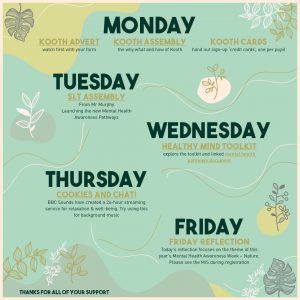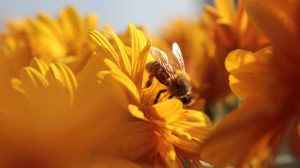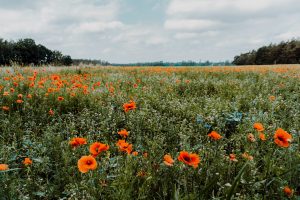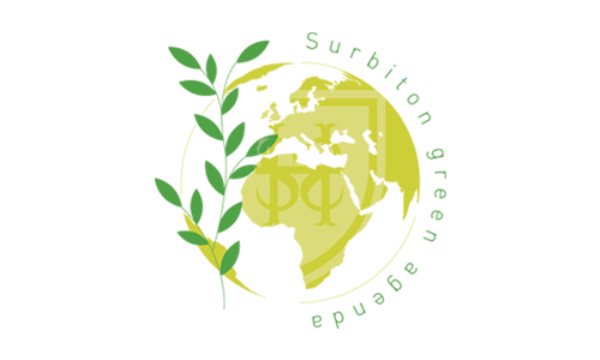The Surbiton Green Agenda are committed to improving their environment and raising awareness to ongoing worldly events. Throughout May there are a number of events taking place that we would like to draw attention to.
Mental Health Awareness Week – Nature
Mental Health Awareness Week takes place between 10 – 16 May 2021 and this year’s theme is nature and the environment.
“The evidence is clear that access to nature is crucial for our mental health, and millions of people discovered that during lockdowns in 2020. However, this was not the same for all of us. Mental Health Awareness Week 2021 will explore what the barriers to accessing nature are, and ensure that everyone is able to share in the natural world and experience its mental health benefits.” – Mental Health Foundation


In line with the national Mental Health Awareness Week from 10 to 16 May, we have introduced our bespoke Mental Health Pathways campaign. It is really important that when we are not feeling ok, that we know who we can talk to and what support we can get. Everyone’s mental health journey is unique; sometimes we may just need a chat with a parent or a friend to feel better. However, sometimes it is not always that straightforward, and if we do feel ourselves feeling sad for a while, then we may want to find support outside of our immediate family and friends. Our pathways can hopefully guide you if you need it; to seek the right help at the right time.
World Bee Day
We all depend on the survival of bees!
Bees and other pollinators, such as butterflies, bats and hummingbirds, are increasingly under threat from human activities.
“Pollination is, however, a fundamental process for the survival of our ecosystems. Nearly 90% of the world’s wild flowering plant species depend, entirely, or at least in part, on animal pollination, along with more than 75% of the world’s food crops and 35% of global agricultural land. Not only do pollinators contribute directly to food security, but they are key to conserving biodiversity.” – World Bee Day

To raise awareness of the importance of pollinators, the threats they face and their contribution to sustainable development, the United Nations designated 20 May as World Bee Day.
The goal is to strengthen measures aimed at protecting bees and other pollinators, which would significantly contribute to solving problems related to the global food supply and eliminate hunger in developing countries.
We all depend on pollinators and it is, therefore, crucial to monitor their decline and halt the loos of biodiversity.
World Turtle Day
World Turtle Day was created as a yearly observance to help people celebrate and protect turtles and tortoises and their disappearing habitats around the world.
“American Tortoise Rescue, a nonprofit organisation established in 1990 for the protection of all species of tortoise and turtle, is sponsoring World Turtle Day this year on 23 May. Susan Tellem and Marshall Thompson, founders of ATR and World Turtle Day, advocate humane treatment of all animals, including reptiles. Since 1990, ATR has placed 4,000 tortoises and turtles into caring homes. ATR assists law enforcement when undersize or endangered turtles are confiscated and provides helpful information and referrals to persons with sick, neglected or abandoned turtles.” – World Turtle Day
Every Flower Counts
When it comes to providing vital nectar and pollen for bees, butterflies and other insects, every flower counts. And your lawn can help provide that feast!
“On a single day in summer, one acre of wildflower meadow can contain 3 million flowers, producing 1kg of nectar sugar. That’s enough to support nearly 96,000 honeybees per day. But since the 1930s, we have lost nearly 7.5 million acres of flower-rich meadows and pastures. Just 1% of our countryside now provides this floral feast for pollinators. Against this loss, habitats such as lawns have become increasingly important.” – Plant Life

Help your flowers bloom by taking part in #NoMowMay and the Every Flower Counts Survey from 22 – 31 May and get your own Personal Nectar Score.
Categories: Senior School




